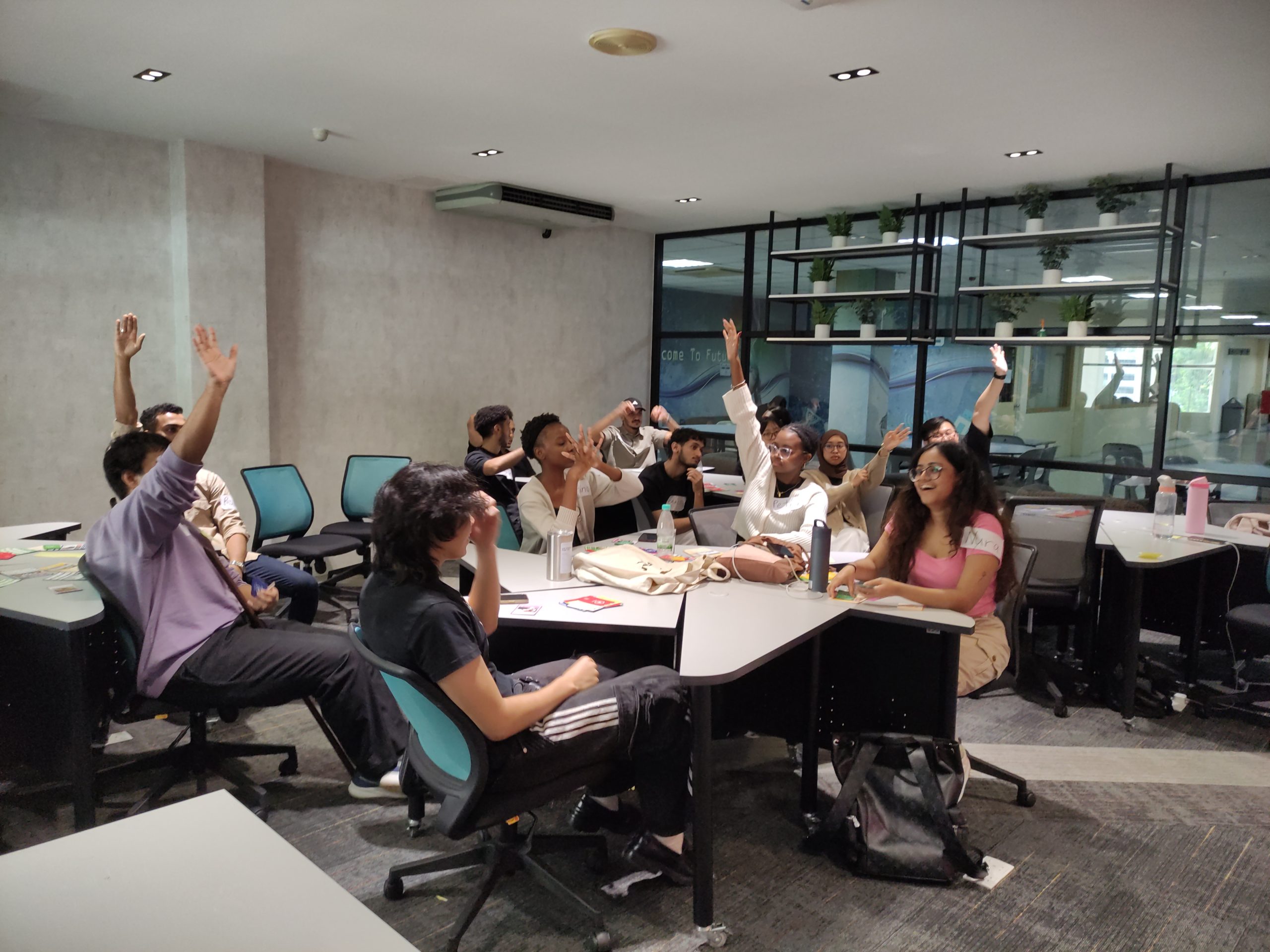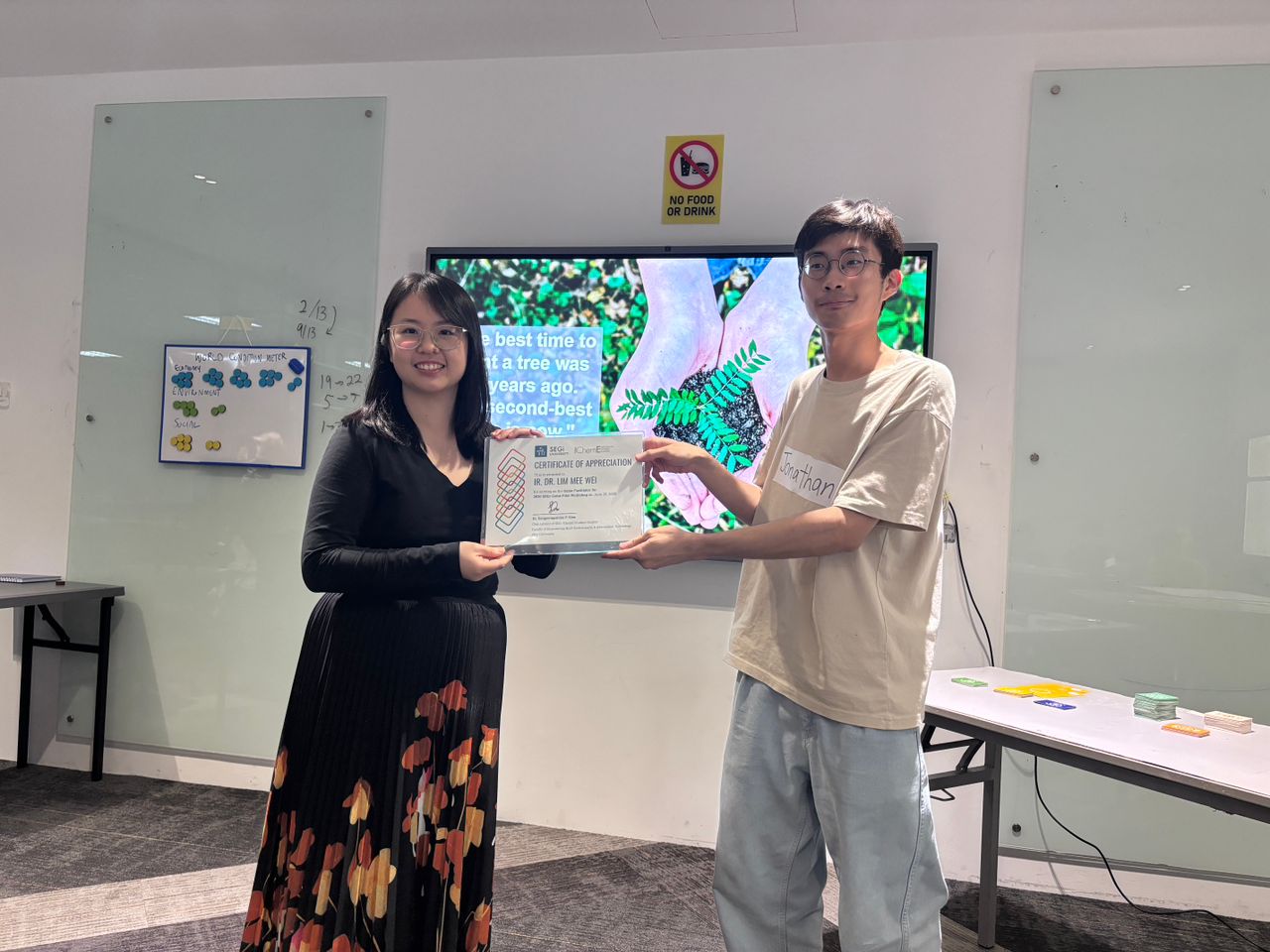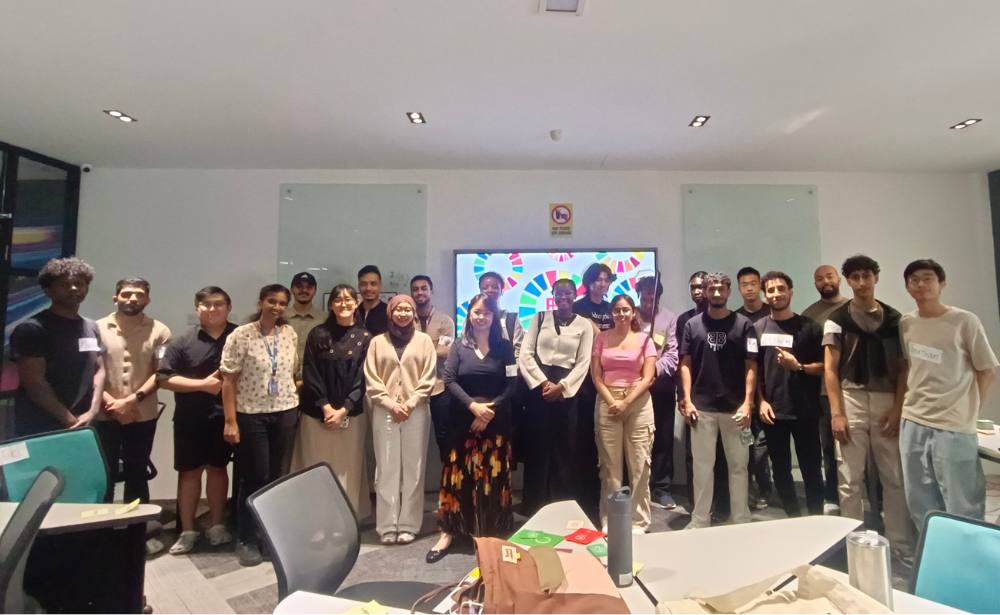A group of engineering students took part in an immersive workshop on recently, experiencing the globally recognised 2030 SDGs Game. This experiential learning tool placed sustainability into their hands by simulating real-world challenges and opportunities, allowing them to explore the delicate balance between People, Planet, and Prosperity. Designed to replicate the complex choices humanity faces, the game showed that the future of our world depends on the decisions made today.
Organised at SEGi University and facilitated by Ir. Dr. Lim Mee Wei, an Environmental, Social, and Governance (ESG) trainer from the Selangor Human Resource Development Centre (SHRDC), the two-hour session introduced students to sustainability through interactive role play. Teams were tasked with running projects using limited time and resources, and soon discovered how their choices influenced not only their outcomes but also the broader global ecosystem. By the end of the session, many students realised the true impact of their actions and the importance of long-term thinking.

SEGi believes education should go beyond textbooks, preparing students to address the world’s greatest challenges. The United Nations has warned that urgent progress is needed: as of 2023, only 12% of the Sustainable Development Goals are on track to be achieved by 2030, while nearly half show only minimal progress or are regressing. By embedding sustainability learning experiences into academic programmes, SEGi is helping to close this gap, ensuring that its graduates are future-ready leaders who can contribute solutions.
The workshop demonstrated the importance of collaboration, critical thinking, and collective responsibility. Students were encouraged to reflect on their personal role in shaping a sustainable society, echoing the belief that responsibility for change does not rest solely with governments or corporations but also with individuals. According to the International Labour Organization, the green transition could generate 24 million new jobs worldwide by 2030 (ILO), making sustainability not only a moral imperative but also an economic opportunity.
The experience was both fun and transformative. Students highlighted how the game promoted teamwork, creativity, and social interaction while deepening their understanding of global issues. One participant, second-year Chemical Engineering student Nura Kaisar, described the workshop as “an engaging, interactive experience that inspired collaboration, critical thinking, and deeper understanding of global sustainability goals.” Such reflections underline the value of integrating interactive learning into higher education, ensuring young engineers are equipped not just with technical knowledge but with the values and awareness to build a better future.
This initiative is a clear demonstration of why SEGi invests in experiential learning: to nurture engineers who can innovate responsibly, champion sustainability, and align their careers with the world’s pressing need for solutions. In doing so, SEGi contributes to a generation of professionals who will not only thrive in their industries but also contribute positively to society and the planet.
This event is organised in support of the following United Nations Sustainable Development Goals (SDG):
SDG 4: Quality Education
SDG 11: Sustainable Cities and Communities
SDG 13: Climate Action

![]()

